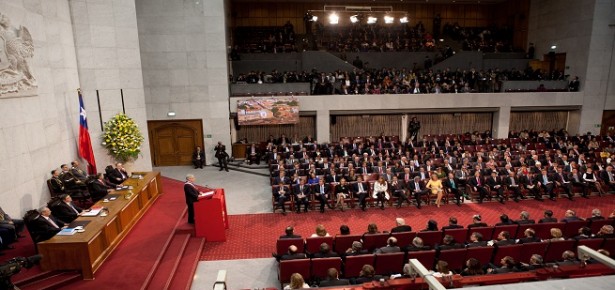
On January 28, Chile’s Congress approved changes to its civil code, allowing for civil unions between two individuals regardless of gender. The reform establishes a new entity (called Acuerdo de Unión Civil, Civil Law Agreement) that allows two individuals to regulate legally commonly owned possessions and to have full access to a partner’s socio-economic benefits such as medical care and pensions. Expected to come into force in May, the reform represents a major victory for Chile’s gay and lesbian activists who have been the leading actors behind the push for same-sex relationship recognition. Two organizations have been central to this particular struggle: Movilh and Funación Iguales. Their victory was particularly sweet given that the reforms received solid majorities in both chambers (including the notoriously conservative senate) and in light of how long it has taken them to secure parliamentarians’ support: In effect, the first bill to recognize civil unions was introduced to Chile’s parliament eleven years ago and, despite promises made by subsequent administrations, they had been unable to secure enough votes for their passage.
While the approval of civil unions represents an important achievement for Chilean activists, their policy victories still lag behind those of their counterparts in other Latin American countries.
While the approval of civil unions represents an important achievement for Chilean activists, their policy victories still lag behind those of their counterparts in other Latin American countries. Indeed, Chile continues to be a notable straggler in the expansion of gay and lesbian rights among the region’s most prosperous countries (there exists a correlation in Latin America between levels of economic development and the extension of gay and lesbian rights). Chile was one of the last countries in the region to decriminalize same-sex relationships (1999), and it only approved its first anti-discrimination legislation based on sexual orientation in 2012 when several other countries began to do so as early as the late 1990s.
In terms of same-sex relationship recognition, Chile belatedly joins a group of several other countries that have already recognized civil unions (Brazil, Argentina, Uruguay, Mexico, Colombia and Ecuador), some as early as 2002 (Argentina). What’s more, while in some of these countries civil unions allow same-sex couples to adopt (which is one of the most contentious issues in these debates), Chile’s will not. What explains the laggardness on this front of a country often used by many as the socioeconomic model of development that Latin Americans should emulate? In The Politics of Gay Marriage in Latin America, to be released in May, I use Chile as one of three cases to account cross-national variance in the expansion of gay rights by looking at gay marriage in particular. Compared with two countries in which gay marriage has been approved (Argentina and Mexico), I demonstrate that Chile is the straggler in the extension of rights because of three main factors: the historic weakness of its gay movement and its consequent inability to establish strong networks; the configuration of its national political institutions (which allow socially conservative forces veto power on moral policy reform); and a political process based on consensus that limits the ability to bring about significant policy change. Given these factors, the prospects of having Chile approve gay marriage soon appear, for now, rather slim, and are likely to continue making Chile a laggard on gay rights.
Latest Comments
Have your say!